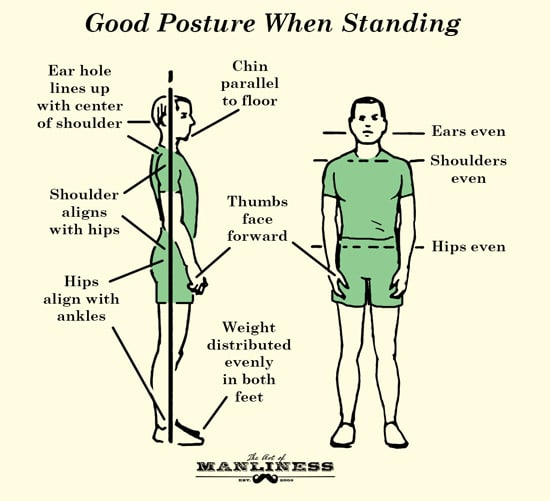
How to exercise begins with a medical clearance. Start with a warm-up by warming up your joints and muscles. Choose a physical activity that you enjoy and stick with it! Begin with light reps. After you have cleared your medical condition, start with light exercises. Do some light stretching first if you don't have the time to do a full workout. Gradually increase the intensity and duration of your exercise sessions. Avoid injury and increase muscle mass slowly.
Exercise routines to get you moving
When you start an exercise routine, you should be realistic about your current physical fitness level. Before you begin an exercise regimen, it is important to be aware of any injuries or other health issues you may have. It is possible to increase your strength over time by including small, achievable tasks in your daily schedule. You might also find it helpful to join a gym, particularly if you are a social butterfly. It is possible to share your experience with a friend or a group of workout buddies.
A great tip for making your exercise regimen more sustainable is to mix it all. Choose a different activity every week and switch up your exercise routine every now and then. Try running on a trail or walking on a treadmill if you do not like to run on the treadmill. This will keep you motivated and prevent you from becoming bored and giving up. Do not compare your routine to other people. If you find yourself comparing yourself with other people, you might become discouraged and decide to stop exercising.
Find an activity you are passionate about
Finding an activity you enjoy is not difficult, no matter what your passions are, such as spinning, hiking, and yoga. Some people find exercise boring and others love it. You'll be more inclined to keep doing the activity you love. These are some ways to find an exercise activity that you enjoy. Here are some fun and popular ways to get active.

Experiment with new activities, and learn different routines. Do not be limited to the same type of exercise that you have done before. Experiment with sports, martial arts, dancing, and other activities. There are many choices, and you will find an activity that inspires you to keep going. Music is another great motivator for exercising. The music you select will help you remain focused and motivated as you exercise.
Keep yourself accountable for your fitness program
If you're serious about losing weight and getting fit, there are a few ways to keep yourself accountable. First, consider your motivations for exercising. For example, do you want to lose weight, or do you simply want to feel better? Consider the benefits of your desired outcome and make a list of reasons to stick to it. Remind yourself of these benefits on a regular basis, either through conversations with friends or through rewards. After identifying your motivation, you can create a plan that will help you reach your goals. Choose an exercise routine that you like.
A workout log is a good idea if you don’t have one. Keep track of how many burpees or push-ups you can do in one minute. Once you've reached your goal, keep track of the results and make a note of them. When you can see you have reached your goal, you'll be more motivated and will be more likely to stick with your plan. Keep a gratitude log to track your progress.
Exercise at home
It is essential to establish goals if you are going to exercise at home. Goals help you stay on track, guide your workout choices, and help you overcome obstacles. A goal to walk a half-mile in a month can be challenging if you work hard or have children. Setting short-term objectives can keep you motivated. Be realistic about your goals and make it a priority.
For success, create a safe area to exercise. To reduce interruptions, move furniture away from the way. For a more relaxing home workout, ask your roommates to join you. Make sure to move furniture out of the way or get rid of a few objects that might fall. If you have pets, protect your floors with a mat or towel.
Keep up your fitness goals

For reaching your goals, it's important to keep track your fitness progress. You need to keep track of how you are doing. This allows you find flaws in your workouts or diet and make the necessary adjustments. Visualizing your fitness goals will boost your motivation and help achieve your goals. Tracking your fitness progress, even though it seems tedious, can make the difference of success or failure. Setting goals is a good idea. You can also track your progress.
Running makes it easy to keep track of your fitness progress. It is easy for weightlifters to track their progress by simply writing down their stats each week. Anyone can keep a journal to track their progress, even those who are simply trying to get fit. You can also track the number of calories you've burned and how many pounds you gained after exercise. Keeping a record of how you feel and what you eat will also motivate you to exercise more.
FAQ
What are some mental-emotional issues?
Any condition that causes major distress or impairment in functioning can be considered mental disorder. Depression, anxiety, schizophrenia and borderline personality disorder are some examples of mental disorders.
How can I prevent mental health issues?
It's not always easy to prevent mental illness. But, here are some tips to keep in mind:
-
Don't drink alcohol. Drinking alcohol can cause depression and affect your mood.
-
Avoid drugs. Avoid using drugs.
-
Get enough sleep. You can feel anxious or depressed if you don't get enough sleep.
-
Exercise regularly. Exercise can release endorphins, which make you happy.
-
Make sure you eat healthy foods. Eating junk food can make you feel sluggish and unhappy.
-
Spend quality time with loved ones. Spending time with those you love can improve your mood.
-
Have fun. Enjoy your life and be open to new experiences.
-
You should take breaks from social media. Social media sites can make people feel lonely and isolated.
-
Treat yourself with kindness. Treat yourself nicely, even if you aren't feeling great.
-
Ask for help. Ask for help if you are having difficulty coping. Talking with a friend or family member is a great way to get help.
-
Remember that it's okay to cry. Crying helps you release tension and stress. It does not necessarily mean that something is wrong.
-
Keep busy. Do something that you love.
-
It is important to maintain good hygiene. Bad hygiene can make it difficult to feel attractive and clean.
-
Stay connected. Staying connected will help you stay positive.
-
Learn how to relax. Relaxation techniques like yoga and meditation can help you cope better with stress.
-
Find meaning and purpose in what you do. Finding purpose in your job and hobbies can bring you satisfaction.
-
You should be focusing on the moment. Concentrate on the present moment and you won't be so worried about the distant future.
-
Set goals. It can be motivating to set goals.
-
Do something nice to yourself. Being kind to yourself can help boost self-esteem.
-
Practice gratitude. Gratitude helps you to appreciate all of the good things about your life.
-
Volunteer. Volunteering can be an enjoyable way to spend time and make a difference in the world.
-
Give back. Giving back to others can make it feel fulfilling.
-
Watch out for warning signs. You should be aware of warning signs and reach out for assistance if you notice any changes.
Why is it important to have a healthy mind?
Work, play. Learn. And love. When we talk about mental health, we're talking about our overall wellness. When we refer to mental health, we mean the physical, psychological and spiritual factors that have an impact on us every day. There are many options for taking care of yourself mentally and physically as well as emotionally, spiritually, financially, and socially. It doesn't take all of the above at once. Just start somewhere.
The first step towards improving your mental health is understanding where you stand now. Take this quiz and find out how much you're doing to support your mental wellbeing. If you score low, then you might want to consider making some changes to your lifestyle.
Let's say you got a high score. Congratulations! Consider the following tips to improve and maintain your mental well-being.
-
Get enough sleep Get enough sleep to keep your brain alert and stimulated. The American Academy of Pediatrics (AAP) recommends that you get at least 7-8 hours of sleep each night.
-
Exercise Regularly. Exercise releases endorphins in your body which makes you happier and less likely to stress. Do 30 minutes exercise five times a weeks.
What is Positive Psychology and Why Is It Important?
Positive psychology focuses on what makes us feel better about ourselves, such as happiness, optimism, gratitude, hope, love, kindness, compassion, forgiveness, courage, humility, curiosity, empathy, spirituality, and meaning. Positive psychology aims to make people happier, healthier, more wiser, and better through self-improvement.
There are two types if positive psychology: trait-positive psychology and process-positive psychology. Trait positive psychology studies the natural behavior of people. Process positive psychology studies how we can use certain strategies to achieve specific goals.
What should I do if I am experiencing mental health issues?
It's imperative to seek help when you're struggling with any mental health issue. You may have been subjected to trauma or abuse. This could have affected your perception of yourself.
You might also have an eating disorder, addiction or other type of mental illness. These disorders can cause serious damage to your life.
They shouldn't be dealt with on their own. Instead, you should talk to someone who knows what they're doing. Professional therapists can help you overcome these obstacles.
Are there any problems with me if my depression is persistent?
Teens are often affected by depression. But, many teens struggle with depression.
This doesn’t mean you’re insane or weak. People who are depressed don't know it. Depression is a medical condition.
There are several kinds of depression. Some people feel only sadness, while some others experience other emotions. There are different levels of severity.
Some people experience mild depression, while others have severe cases. It's important to understand that depression isn't always bad. Sometimes, depression helps us to cope with stressful events.
If you are feeling unmotivated, sad or tired, it is a good idea to see a doctor. Your doctor will diagnose you and recommend treatment.
What can psychologists tell us about mental health?
Psychologists believe that mental health is an essential part of human development. They also believe that mental health is not only about having no mental illnesses but also about being mentally fit.
Mental health is a topic that psychologists have differing opinions on. Some psychologists argue that mental well-being is not important, as there are many people without mental illnesses. Other psychologists think that mental health is essential because without it, we can't function properly.
Statistics
- In any given year, an estimated 18.1% (43.6 million) of U.S. adults ages 18 years or older suffered from any mental illness, and 4.2% (9.8 million) (healthypeople.gov)
- It does have some influence, but not nearly as much as we might think, so focusing less on attaining wealth will likely make you happier (Aknin, Norton, & Dunn, 2009); (positivepsychology.com)
- More than 50% will be diagnosed with a mental illness or disorder at some point in their lifetime.3 (cdc.gov)
- More than 40 million adults in the United States have an anxiety disorder, but less than 37% of people seek mental health treatment for their symptoms. (talkspace.com)
- Neuropsychiatric diseases are the leading cause of death and disability in the U.S., accounting for 18.7 percent of all years of potential lifespan loss and premature mortality.
External Links
How To
How to Manage Stress
Stress is a normal part of life; however, when we feel stressed, we want to find ways to relax and relieve our tension. Stress can impact every area of your daily life. It can cause headaches and other physical problems, such as neck pain, backache, stomach pain, nausea, vomiting, diarrhea, constipation (insomnia, depression), anxiety, mood swings, muscle spasms, and stomach pain. You may even develop ulcers if you're under chronic stress.
There are many ways you can reduce stress. Exercise helps you release endorphins, which make you happy, relaxed, and calm. Meditation reduces stress by slowing down and deepening your breathing. Yoga is another way to reduce stress levels and improve your overall health.
Learn how to control stress and eliminate it. This is the most effective way of managing stress. Ask someone who does.